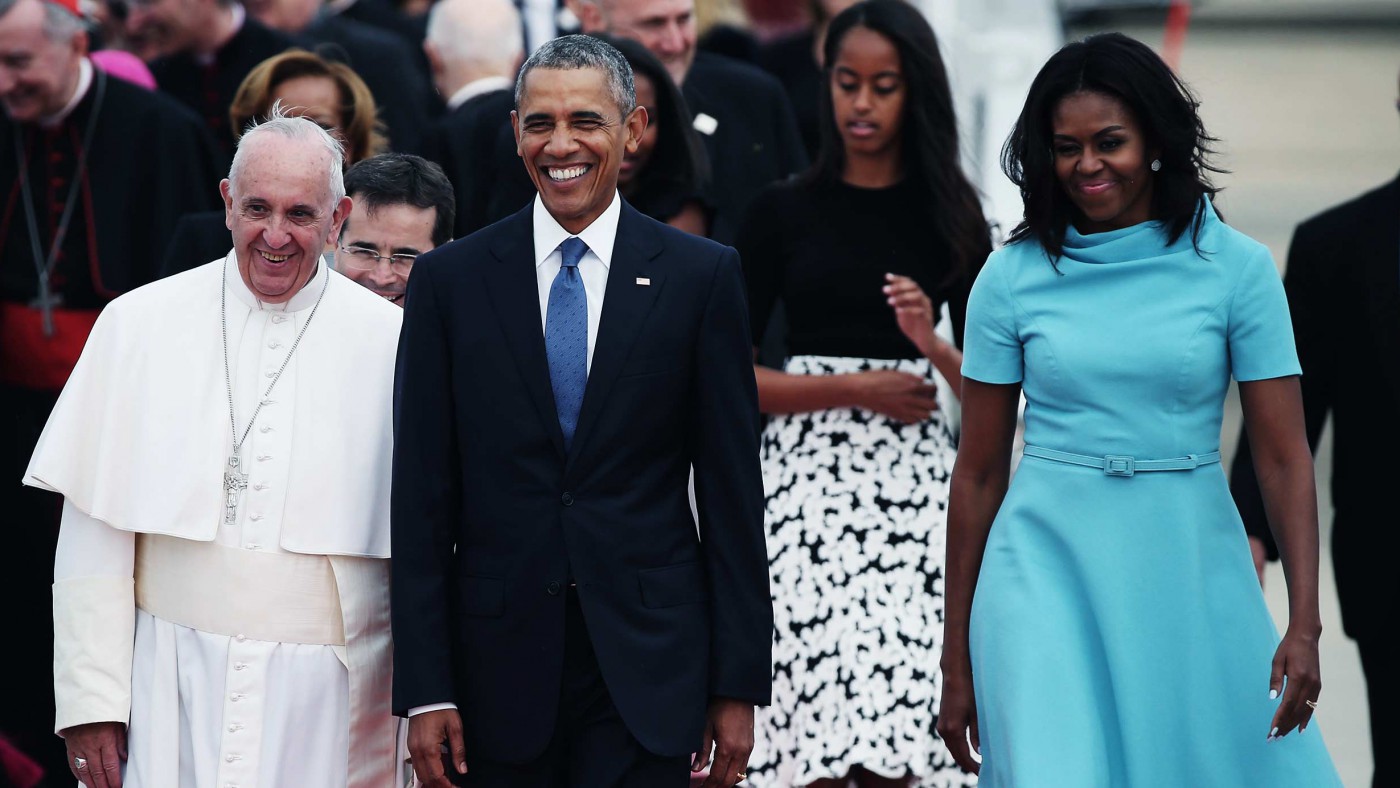The Pope will address Congress today and the champions of the American Way on the Hill are as nervous as naughty schoolchildren outside the head teacher’s office.
Francis will find plenty to criticise. But it is consumerism not capitalism that gets him cross.
Americans dislike criticism, especially from foreigners (and, if they are WASPS, especially when those foreigners are Latin Americans). The prospect of a religious leader (even when, for 70 million of them, he is their religious leader) fulminating against their way of life, has them riled. From Ann Coulter to Donald Trump, the self-appointed defenders of the American way of life are getting ready for a confrontation with his Holiness.
Pope Francis will disappoint this combative lobby. He knows that, despite the mistakes, there is value in the free market. The system may be flawed – in Evangelii Gaudium, his recent ‘apostolic exhortation’, he warns against dog-eat-dog competition, compulsive consumption and corruption – but he believes Americans can mend it. I suspect he will warn them that it is time they stopped messing about, and started working seriously to reform their economy. Their future (and that of the rest of the world) depends on it.
He will challenge the world’s greatest creators of wealth to keep it ethical: to stoke, not suppress, individual responsibility; to offer opportunities to the disadvantaged; and to curb excesses. This is not revolutionary stuff – skim through the corporate social responsibility documents of any self-respecting company, and you’ll find the same sentiments: to enjoy the rewards of success, capitalists need to show they are spreading prosperity, not hoarding it for winter in Monaco.
It is a view that today’s CEOs subscribe to, and most share-holders encourage. It is also the view shared by this Pope’s predecessors, John Paul II and Benedict XVI. But the Polish and German Popes were such passionate supporters of the West against Communism that their credentials as apostles of the free market were never in doubt.
This Pope is different. He hails from Argentina, seen by the ignorant as a breeding ground for Left-wing terrorists, and acts as ‘fixer’ behind the scenes in the rapprochement between the US and Communist Cuba. He worries about the environment, hugs refugees, and bunks down in a hostel rather than the palace he is entitled to. For many Americans – and not just for them – he is a lefty until proven otherwise.
Francis has felt the need to debunk the ‘Red Pope’ myth, categorically denying that he’s on the Left. I suspect this is not enough for Americans, who seek a wide-armed embrace of their way of life. But the Pope was never going to be wowed by consumerist choice (or, in The Onion’s words, Oreo Capitalism). His first impression of the free market was the unsavoury Argentinian model: in the 1970s and 80s, it delivered power and riches to the greedy elite at the top, and oppression and poverty to almost everyone else. This inspired such revulsion in the young Jesuit that to this day he thunders against compulsive consumerism and opts for a modest lifestyle, doing his rounds in a Fiat500, and – when in Rome – bunking down for the night in a hostel.
Yet unlike many of his fellow-priests, Francis never succumbed to the Liberation Theology that was popular throughout Latin America in his youth and defended even the most violent anti-establishment protests. Marxism held no appeal, then or now.
America’s Congressmen need not worry: the man who will address them today believes in a free market, when it is operated by men and women who have a moral compass. He believes in prosperity, when it is measured in well-being as well as wealth. This is no Arundhati Roy or Naomi Klein. Francis’s vision for the world, in fact, sounds like George Osborne’s for Britain – and Tim Montgomerie’s in The Good Right. Given that a majority of Americans think their country is heading in the wrong direction, Francis has plenty of scope to offer advice, and will do so with the humour and humility which have become his hallmark.


